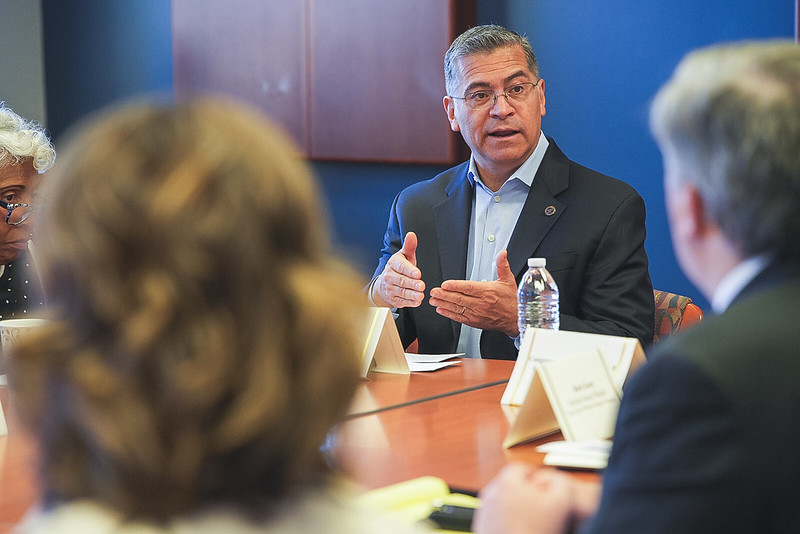The Biden administration on April 26 restored LGBTQ healthcare protections that were nixed in the Trump era, drawing praise from queer organizations nearly two years after the president first proposed to re-establish safeguards implemented during the Obama years.
The finalized rule codifies a Department of Health and Human Services (HHS) policy stipulating that Section 1557 of the Affordable Care Act’s ban on sex discrimination includes LGBTQ+ patients. At the same time, the policy also nods to religious liberty, saying it “does not require or mandate the provision of any particular medical service,” after GOP-led states threatened to sue the Biden administration when the rule first emerged in the summer of 2022.
“Section 1557 prohibits discrimination on certain prohibited bases, and does not interfere with individualized clinical judgment about the appropriate course of care for a patient,” the rule states. “OCR has a general practice of deferring to a clinician’s judgment about whether a particular service is medically appropriate for an individual, or whether the clinician has the appropriate expertise to provide care.”
The rule applies to organizations receiving federal funding as well as health insurance providers who work with the government. For the first time Section 1557 applies to Medicare Part B, according to HHS.
While the Obama administration made the case that the Affordable care Act’s ban on sex extended to gender identity, the Trump administration rejected that position. However, based on the 2020 Supreme Court decision clarifying that discrimination on the basis of sexual orientation and gender identity amounts to discrimination on the basis of sex, the Biden administration adopted the Bostock ruling and said it applied to federal sex discrimination laws such as the Affordable Care Act. That issue continued to be caught up in federal courtrooms just as it did during the Obama era.
“Today’s rule is a giant step forward for this country toward a more equitable and inclusive health care system, and means that Americans across the country now have a clear way to act on their rights against discrimination when they go to the doctor, talk with their health plan, or engage with health programs run by HHS,” HHS Secretary Xavier Becerra said in a written statement.
The rule is moving forward three months after HHS also finalized a separate proposed rule to partially rescind a Trump-era “conscience” policy that broadly allowed doctors, janitors, and other workers to refuse services — even in emergency situations, according to Lambda Legal.
“Healthcare is a fundamental human right,” Omar Gonzalez-Pagan, counsel and healthcare strategist for Lambda Legal, said in a written statement. “The rule restores critical regulatory non-discrimination protections for those who need them most and ensures a legally proper reading of the Affordable Care Act’s healthcare non-discrimination law.”
Jennifer Levi, the senior director of transgender and queer rights at GLBTQ Legal Advocates & Defenders (GLAD), said the non-discrimination protections are key to positive health outcomes for both individuals and communities at large.
“At a time when politicians are banning essential transgender and reproductive health care, and as inequities in access to care persist for LGBTQ+ people, people of color, women, older adults, and people for whom English is not their first language, we commend the Department of Health and Human Services for affirming robust federal protections to ensure people can access the care they need and to support stronger, healthier communities,” Levi said.
The National Center for Lesbian Rights underscored the importance of healthcare protections by pointing to the organization’s long history of running a legal helpline for individuals who are denied care simply due to identity. Julianna Gonen, NLCR’s federal policy director, said the help line shows that LGBTQ people are “routinely” denied such care.
“We commend the Biden Administration for issuing these important regulations that make clear that federal law protects LGBTQ people and those accessing essential reproductive care,” Gonen said in a written statement.




































